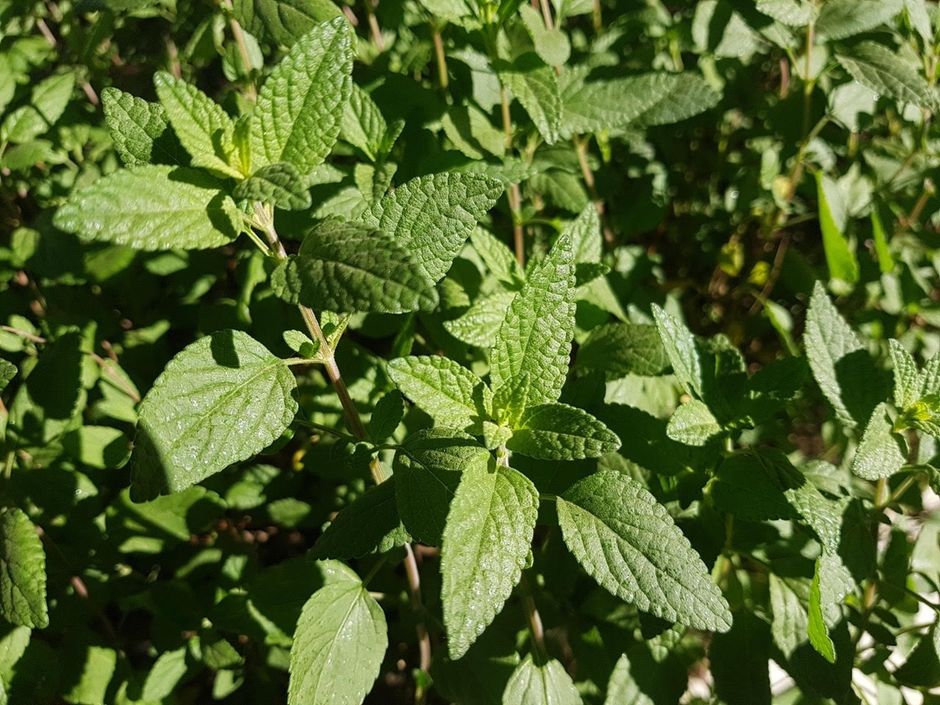In Israel there were four different wild species of mint: horse mint, polo mint, mastrtanto and mentha aquatica.
 Mint. / Photo: Antonio Cruz
Mint. / Photo: Antonio Cruz
Woe to you, scribes and Pharisees, hypocrites! For you tithe mint and dill and cumin, and have neglected the weightier matters of the law: justice and mercy and faithfulness. These you ought to have done, without neglecting the others. (Mt. 23:23)
The New Testament refers to mint twice in relation to the tithe (Mt. 23:23; Luke 11:42). The Law did not specify explicitly that mint had to be tithed, but the Pharisees insisted that all foodstuffs were included in the obligation to tithe. Hence Jesus’s recrimination of the hypocritical attitude whereby scrupulous attention was paid to insignificant material things while matters of great importance were neglected.
The Greek word translated as “mint” is hedýosmon and literally means “sweet or mild perfume”. It is also referred to as minthá. This term corresponds to a group of vivacious herbs belonging to the Mentha species, and specifically, the Lamiaceae family, which are characterised mainly by their very strong fragrance. It was on account of this feature that they have been used since ancient times in food, in medicine and as a means of expelling bad smells from homes or places of worship.
In Israel there were four different wild species of mint: horse mint (Mentha longifolia), with its pink or purple blossoms which ranges from 40 cm to 120 cm in height; polo mint (Mentha pulegium), with its pink blossoms in spherical inflorescences, whose height normally does not exceed 40 cm; mastrtanto (Mentha suaveolens), which blossoms in thick white clusters and smells like spearmint; and mentha aquatica which, as its name suggests, grows on river banks and near streams, often with its roots in the water.
A chemical study of the different species of mint has revealed the presence in them of substances which have decongestant, anticoagulant, analgesic, anti-inflammatory, antioxidant and sedative properties. It is a refreshing herb in that it produces a sensation of freshness in the mouth and respiratory tracts. Hence its effectiveness in combatting common colds.
The verse in Matthew 23, quoted at the start of this article, refers to the deeds of the scribes and the pharisees not being consistent with their words, nor with the will of God as expressed in the Torah, from which it was their obligation to teach the people. Therefore, Jesus describes their attitude as hypocritical, as they failed to distinguish between what was fundamentally important and what was merely accessory, and thus confused the will of Almighty God with their own man-made prescriptions. Besides, this chapter also refers to the evil that the leaders Israel, and of the people who followed their teaching had inflicted on the prophets and men sent from God throughout the nation’s history. All this evil eventually culminated in the death of Christ on the cross.

[photo_footer] Photo: Antonio Cruz. [/photo_footer] Unfortunately, these words of the Master, transcribed by Matthew in the context of the early Church, which stood against the accusations levelled at them by the synagogues, have been unjustly used by Christians to attack Jews down through the centuries. In recent times, this chapter in Matthew has become the reference text for people wishing to present a negative image of Judaism and, perhaps, the evil done to Jews in so-called Christian nations is partly attributable to a perverse interpretation of this text. In this regard, it is an injustice to criminalise an entire people for what was done by some of their representatives in the past.
Jesus was a Jew, and so were his disciples, and the earliest Church was made up mainly of Jews. The Son of God came to die for the whole human race, therefore the people of every language and nation are responsible for his crucifixion. This theological exercise of Christian self-examination is crucially important in the light of the terrifying history of Jewish suffering during the Holocaust.
These verses in Matthew throw into relief, before the eyes of Christians everywhere and at all times, the terrible reality of human sin. We are in real danger of developing a Christian version of Phariseeism, of trying to domesticate God, or impose on others a kind of “god” who is merely a reflection of our own image and likeness. The Almighty God cannot be confined in this way; He is the great mystery which will always surpass and transcend our understanding.

Las opiniones vertidas por nuestros colaboradores se realizan a nivel personal, pudiendo coincidir o no con la postura de la dirección de Protestante Digital.
Si quieres comentar o